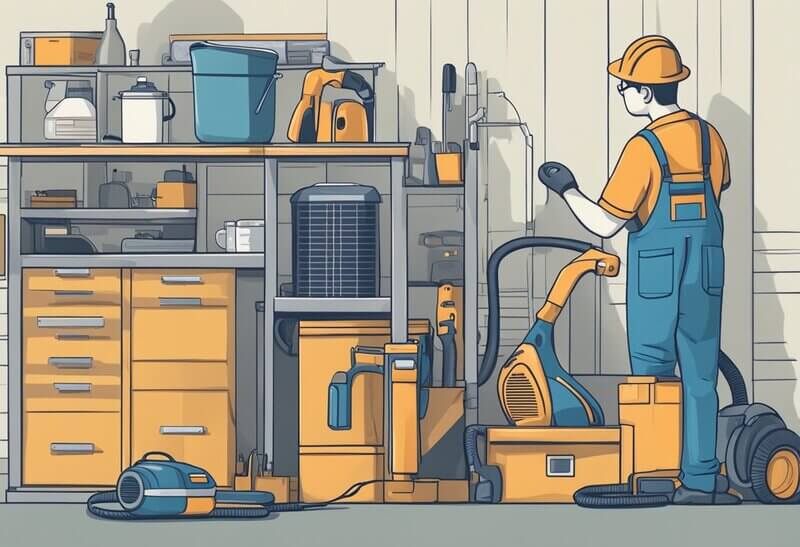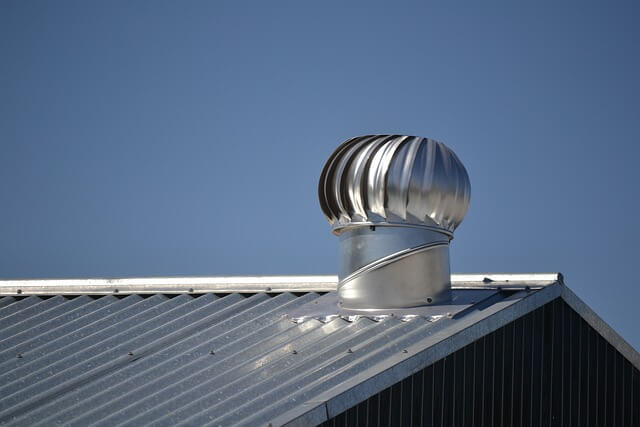Budget-Friendly Strategies for Routine Appliance Maintenance: Tips and Tricks
Regular maintenance of household appliances is essential to ensure they function optimally and last longer. However, many homeowners neglect this crucial aspect of appliance ownership due to the perception that it is expensive and time-consuming. In reality, there are several budget-friendly strategies that homeowners can implement to maintain their appliances without breaking the bank.
One of the most effective ways to maintain appliances is to clean them regularly. This includes wiping down the exterior surfaces, cleaning the filters, and removing any debris that may have accumulated over time. For instance, cleaning the refrigerator coils can improve its efficiency and prevent breakdowns. Similarly, cleaning the lint trap in the dryer after every use can reduce the risk of fire and prolong its lifespan.
Another budget-friendly strategy for appliance maintenance is to perform routine inspections. Homeowners can check for signs of wear and tear, loose connections, and other issues that may affect the appliance’s performance. By catching these problems early, homeowners can prevent costly repairs and replacements down the line. Additionally, routine inspections can help identify areas where improvements can be made, such as upgrading to energy-efficient appliances or adding surge protectors to prevent damage from power surges.
Understanding Appliance Lifespan
Household appliances, from refrigerators to washing machines, play a pivotal role in our daily comfort and convenience. Knowing their average lifespan is vital for effective home management and cost savings. Most major appliances have a predictable life expectancy, influenced by brand quality, usage frequency, and maintenance practices. Understanding these aspects helps in planning replacements and avoiding unexpected breakdowns.
Determining Appliance Lifespan
The lifespan of home appliances varies significantly based on several key factors. For instance, refrigerators typically last up to 13 years, while dishwashers may have a shorter lifespan of about 9 years. Regular maintenance, such as cleaning filters and checking for wear and tear, extends their functionality. Additionally, energy-efficient models not only reduce utility bills but often have longer lifespans due to their advanced technology.
Budgeting for Appliance Replacement
Anticipating the replacement of appliances is crucial for financial planning. Setting aside a home maintenance fund can alleviate the financial burden of sudden appliance failures. Moreover, it’s wise to stay informed about the latest models and features, as newer appliances tend to be more energy-efficient, which can lead to long-term savings. Understanding the typical lifespan also helps in assessing warranties and deciding if extended coverage is worthwhile.
Making Informed Appliance Choices
Choosing the right appliance involves more than just considering the initial cost. Researching brands and models for reliability and efficiency ratings is essential. Furthermore, consumers should consider the availability of spare parts and service options, as these can significantly impact the practical lifespan of the appliance. Being informed about these aspects ensures that you invest in appliances that not only meet your needs but also offer the best value over their lifetime.
Identify Your Appliances’ Lifecycles
One way to determine the lifespan of your appliances is to check their age. Most appliances have a label that indicates the date of manufacture, which can be used to estimate their age. However, it’s important to note that the age of an appliance doesn’t necessarily correspond to its lifespan. The lifespan of an appliance can vary depending on a variety of factors, such as the frequency of use, maintenance, and the quality of the appliance.
Another way to determine the lifespan of your appliances is to consult an appliance life expectancy chart. These charts provide estimates of how long different types of appliances are expected to last based on factors such as their make and model. For example, refrigerators are expected to last for an average of 13 years, while washing machines are expected to last for an average of 10 years.
Factors Affecting Durability
Several factors can affect the durability of your appliances. One of the most important factors is maintenance. Regular maintenance, such as cleaning and replacing filters and other parts, can extend the lifespan of your appliances. Failure to perform routine maintenance can lead to breakdowns and other issues that can shorten the lifespan of your appliances.
The quality of your appliances is another important factor that can affect their durability. High-quality appliances are typically more durable and long-lasting than lower-quality appliances. Investing in high-quality appliances may cost more upfront, but it can save you money in the long run by reducing the need for repairs and replacements.
In conclusion, understanding the lifespan of your appliances is crucial when it comes to planning for their replacement and budgeting effectively. By identifying your appliances’ lifecycles and taking steps to maintain their durability, you can ensure that your appliances last for as long as possible.
Developing a Maintenance Schedule
To ensure that appliances are running efficiently, a maintenance schedule should be developed. This schedule should include routine maintenance tasks and regular inspections.
Calendar-Based Reminders
One way to develop a maintenance schedule is to create calendar-based reminders. This can be done by marking down specific dates for when certain tasks should be performed. For example, cleaning the refrigerator coils every six months or replacing the air filter in the HVAC system every three months. By having these dates marked down on a calendar, it is easier to remember when maintenance tasks need to be completed.
Seasonal Considerations
Another way to develop a maintenance schedule is to consider the seasons. Some maintenance tasks are more important during certain seasons. For example, it is important to clean gutters in the fall to prevent clogs during the winter months. Similarly, air conditioning units should be serviced in the spring to ensure they are running efficiently during the summer months.
By developing a maintenance schedule, homeowners can ensure that their appliances are running efficiently and prevent costly breakdowns. It is important to stick to the schedule and complete tasks on time to ensure the longevity of appliances.
Cleaning Techniques for Longevity
Proper Cleaning Methods
Routine cleaning is essential for maintaining the longevity and efficiency of home appliances. Neglecting to clean appliances can lead to buildup, which can cause damage or even a breakdown. Proper cleaning methods vary depending on the appliance, but some general tips include:
- Refer to the manufacturer’s instructions for specific cleaning guidelines.
- Use a soft cloth or sponge to avoid scratching the appliance’s surface.
- Avoid using abrasive cleaners or scrubbers that can damage the appliance’s finish.
- Clean the appliance regularly to prevent buildup.
For example, ovens should be cleaned regularly to prevent the buildup of grease and food particles. A self-cleaning mode is a convenient option for many modern ovens, but it is still important to wipe down the oven’s interior with a soft cloth or sponge after each use. Employing oven liners is also a practical strategy. These protective sheets placed on the oven’s bottom effectively catch drips and spills, making cleanup a breeze while preserving the integrity of your oven’s interior.
Natural vs. Chemical Cleaners
When it comes to cleaning appliances, there is a debate between natural and chemical cleaners. Natural cleaners, such as vinegar and baking soda, are often touted as safer and more environmentally friendly than chemical cleaners. However, some appliances may require the use of chemical cleaners to remove tough stains or buildup.
It’s important to consider the appliance and the type of cleaning required before deciding on a cleaner. For example, vinegar and baking soda may be effective for cleaning a refrigerator’s interior, but a chemical cleaner may be necessary for removing hard water stains from a dishwasher’s interior. Always follow the manufacturer’s instructions and use caution when using chemical cleaners to avoid damage to the appliance or harm to yourself.
DIY Maintenance Tips
Keeping appliances in good working condition is essential to prolong their lifespan. Regular maintenance can save money in the long run by preventing costly repairs or replacements. Here are some DIY maintenance tips to help keep appliances running smoothly.
User Manuals and Guides
One of the easiest and most important things to do for appliance maintenance is to read the user manual and follow the manufacturer’s instructions. The manual provides valuable information on how to operate and maintain the appliance properly. It also includes troubleshooting tips and safety precautions.
Common Wear and Tear Fixes
Appliances are subject to wear and tear over time. Here are some common fixes that can be done at home to keep appliances running smoothly:
- Cleaning: Regular cleaning of appliances can prevent buildup of dirt and grime, which can cause damage or malfunction. Use a soft cloth and mild detergent to clean surfaces, and avoid using abrasive cleaners or sharp objects that can scratch or damage surfaces.
- Lubrication: Moving parts in appliances can benefit from lubrication to prevent friction and wear. Use a lubricant recommended by the manufacturer, and follow the instructions carefully.
- Replace filters: Appliances such as air conditioners and refrigerators have filters that need to be replaced regularly. Clogged filters can cause the appliance to work harder and use more energy, leading to higher bills and potential damage.
By following these DIY maintenance tips, appliances can be kept in good working condition for longer, saving money and preventing the need for costly repairs or replacements.
Energy Efficiency and Appliance Care
Maintaining appliances is not only essential for their longevity, but it also plays a significant role in energy efficiency. By keeping appliances in good condition, homeowners can reduce their energy consumption, lower their bills, and help the environment. Here are some budget-friendly strategies for routine appliance maintenance that can help optimize energy use and save money.
Optimizing Energy Use
One of the most effective ways to optimize energy use is to clean appliances regularly. For instance, cleaning the refrigerator coils can help it work more efficiently. According to Family Handyman, “On many fridges, you get to the coils by removing the front grille. Then push a coil cleaning brush (sold at home centers) into the coils, pull it back and vacuum it clean.” This simple task can help the refrigerator run smoothly and use less energy.
Another way to optimize energy use is to use appliances wisely. For example, running the dishwasher only when it’s full can save water and energy. Also, using the right size burner on the stove can help cook food faster and save energy. These small changes can make a big difference in energy consumption.
Upgrading to Energy-Efficient Models
Upgrading to energy-efficient appliances can also help optimize energy use and save money in the long run. According to the Department of Energy, “You can save money and energy at home by choosing energy-efficient appliances and electronics and reducing the amount you use them.” Energy-efficient appliances use less energy and are designed to perform better than traditional models.
When shopping for new appliances, homeowners should look for the Energy Star label, which indicates that the appliance meets specific energy-efficiency standards. Additionally, homeowners can check the appliance’s energy rating to compare it with other models. While energy-efficient appliances may have a higher upfront cost, they can save money in the long run by reducing energy consumption and lowering bills.
In conclusion, optimizing energy use and upgrading to energy-efficient models are two budget-friendly strategies for routine appliance maintenance that can help homeowners save money and protect the environment. By following these strategies, homeowners can enjoy the benefits of well-maintained appliances and a more energy-efficient home.
Cost-Effective Replacement Parts
When it comes to appliance maintenance, replacing parts is often necessary to keep them running smoothly. However, purchasing replacement parts can quickly become expensive. Fortunately, there are ways to save money while still maintaining your appliances.
When to Buy Generic
One cost-effective strategy is to purchase generic replacement parts instead of brand-name ones. While brand-name parts may have a reputation for being of higher quality, generic parts can often be just as good and are much cheaper. It’s important to note that not all generic parts are created equal, so be sure to do your research before making a purchase. Look for reviews and ratings from other customers to ensure that the part you’re considering is reliable.
Sourcing Affordable Components
Another way to save money on replacement parts is to source them from affordable suppliers. Online marketplaces like Amazon and eBay often have a wide selection of replacement parts available at lower prices than traditional retailers. It’s important to be cautious when purchasing from these sources, however. Make sure to check the seller’s ratings and reviews before making a purchase, and be wary of deals that seem too good to be true.
In addition to online marketplaces, there are also specialized suppliers that focus on providing affordable replacement parts. These suppliers can often offer better prices than traditional retailers because they specialize in a specific type of part or appliance. Some popular specialized suppliers include RepairClinic, PartSelect, and AppliancePartsPros.
By purchasing generic parts and sourcing from affordable suppliers, you can save money while still maintaining your appliances. Remember to do your research and be cautious when purchasing replacement parts to ensure that you’re getting a reliable product.
Navigating the Choice Between Professional and DIY Appliance Maintenance
Deciding between professional and self-maintenance for appliances is a common quandary for homeowners. Professional services guarantee expert care but can be costly, while DIY maintenance offers cost savings and a sense of accomplishment. It’s essential to weigh factors like warranty implications and the complexity of the task before deciding. For example, tasks like cleaning refrigerator coils can be safely done at home, but more complex issues like fixing a washing machine motor might require professional expertise.
Cost-Effectiveness and Reliability in Appliance Upkeep
Professional maintenance, though initially more expensive, can be more cost-effective in the long run, especially for high-end or sophisticated appliances. Experts bring specialized tools and in-depth knowledge, potentially averting future breakdowns. On the other hand, for simpler appliances and basic tasks, DIY maintenance can be a reliable and rewarding option. Online tutorials and manuals have made it easier for homeowners to undertake basic repairs and routine maintenance themselves.
Assessing Risk and Skill Level in Appliance Maintenance
Homeowners should assess their own skill level and the risk involved in appliance maintenance. DIY maintenance is suitable for tasks that don’t require technical expertise, but it’s crucial to recognize when a task is beyond one’s skill set. Attempting complex repairs without proper knowledge can lead to further damage or void warranties. It’s wise to consult the appliance manual or seek professional advice for tasks that seem daunting.
Balancing Time and Effort in Appliance Care
Time and effort are also significant considerations in the professional versus DIY maintenance decision. Busy homeowners may find that hiring a professional saves time and hassle, allowing them to focus on other responsibilities. However, those with the time and inclination to learn new skills might find DIY maintenance a fulfilling and practical choice. It’s all about balancing personal preferences, time constraints, and the desire to engage in hands-on home care.
Identifying Situations for Professional Appliance Repair
Understanding when to enlist the services of a professional for appliance maintenance is crucial for homeowners. Complex tasks, especially those involving electrical work or gas appliances, should typically be handled by experts to ensure safety and compliance with standards. Additionally, professional repair is often necessary for high-end appliances that require specialized knowledge or tools. It’s important to recognize that DIY efforts, while cost-saving, may not always be the best approach for intricate or risky repairs.
Preserving Warranties and Ensuring Safety
For appliances still under warranty, it’s imperative to check the terms and conditions before attempting any repairs. DIY repairs can often void warranties, making it essential to opt for authorized service providers for maintenance and repairs. Safety is another paramount concern; tasks like dealing with gas leaks or electrical faults require professional expertise to avoid potential hazards. Homeowners should prioritize safety and warranty preservation when considering appliance maintenance.
Evaluating the Complexity of Appliance Issues
Determining whether to call a professional also depends on the complexity of the issue at hand. For example, a refrigerator not cooling properly might be due to something as simple as a dirty coil, which can be a DIY task. However, issues like malfunctioning compressors or electronic control problems are best left to professionals. Homeowners should assess the complexity of the problem, considering factors like their own skill level and the potential risks involved in tackling the issue themselves.
Balancing Cost, Convenience, and Expertise
Finally, homeowners should consider the balance between cost, convenience, and the level of expertise required. While calling a professional can be more expensive upfront, their expertise can often save money in the long run by properly diagnosing and fixing the issue, thus preventing further damage. In cases where the repair is beyond the homeowner’s skill set, the convenience and assurance of a professional service are often worth the extra expense.
Cost-Benefit Analysis of DIY
On the other hand, DIY maintenance can be a cost-effective option for homeowners who are comfortable with basic maintenance tasks and have the necessary tools and skills. DIY maintenance can save homeowners money on service fees and can be done at their convenience without having to schedule appointments or wait for technicians to arrive.
However, it’s important to note that DIY maintenance can sometimes result in more expensive repairs if something goes wrong. Additionally, some tasks may require specialized tools or expertise that the homeowner may not have, leading to frustration and potential damage to the appliance.
In conclusion, the decision to hire a professional or do DIY maintenance ultimately depends on the homeowner’s personal preference, budget, and skill level. Homeowners should weigh the pros and cons of each option and make an informed decision based on their individual circumstances.
Utilizing Warranties and Service Plans
When it comes to appliance maintenance, warranties and service plans can be a budget-friendly option for homeowners. Understanding the coverage terms and maximizing plan benefits can help save money on costly repairs and replacements.
Understanding Coverage Terms
Home warranties are a type of service contract that covers the repair or replacement of major home appliances and systems. These contracts typically last for one year and can be renewed annually. The coverage terms vary depending on the plan and provider, so it’s important to read the contract carefully and understand what is and isn’t covered.
It’s also important to note that most warranties have a deductible or service call fee that the homeowner must pay for each service request. This fee can range from $50 to $125 or more, depending on the plan and provider.
Maximizing Plan Benefits
To maximize the benefits of a warranty or service plan, homeowners should take advantage of routine maintenance and inspections. Regular cleaning and upkeep can help prevent major breakdowns and extend the lifespan of appliances.
Homeowners should also be aware of the warranty or plan expiration date and schedule any necessary repairs or replacements before the coverage ends. Some warranties also offer additional benefits, such as discounts on new appliances or extended coverage for certain items.
Overall, warranties and service plans can be a cost-effective way to maintain and repair home appliances. By understanding the coverage terms and maximizing plan benefits, homeowners can save money and avoid unexpected expenses.
Preventative Measures for Appliance Care
Taking preventative measures for appliance care can save homeowners a lot of money in the long run. Regular maintenance can extend the lifespan of home appliances by up to 50% [1]. Here are some simple and budget-friendly strategies for routine appliance maintenance.
Routine Inspections
Regular inspections are crucial for identifying any issues before they become major problems. Homeowners should inspect their appliances regularly to ensure they are working correctly. They should check for any leaks, unusual noises, or strange odors. If any issues are detected, homeowners should take immediate action to prevent further damage.
Immediate Action on Issues
If any issues are detected during routine inspections, homeowners should take immediate action. Ignoring issues can lead to more significant problems and more expensive repairs. Homeowners should refer to the manufacturer’s manual for instructions on how to address specific issues. If the issue is beyond their expertise, they should call a professional to fix the problem.
Taking preventative measures for appliance care can save homeowners money and extend the lifespan of their appliances. Regular inspections and immediate action on issues are simple and budget-friendly strategies for routine appliance maintenance.

Leveraging Technology for Maintenance
Keeping appliances in good working order can be a daunting task, but technology can make it easier. Here are two ways to leverage technology for maintenance:
Maintenance Apps
There are many maintenance apps available that can help users keep track of when appliances need maintenance and repairs. These apps can be used to create a maintenance schedule, set reminders, and track maintenance history. Some apps even provide troubleshooting tips and instructional videos to help users diagnose and fix common problems.
One popular maintenance app is HomeRoutines. This app allows users to create a customized cleaning and maintenance schedule for their home, including appliances. The app sends reminders when it’s time to perform maintenance tasks, and users can check off tasks as they are completed. Another app, BrightNest, provides users with personalized cleaning and maintenance tips based on their home and appliances.
Smart Home Integration
Smart home devices can also be used to help with appliance maintenance. Many smart home devices can monitor appliance usage and detect issues before they become major problems. For example, smart water sensors can detect leaks and notify users before they cause significant damage. Smart thermostats can monitor HVAC system usage and provide alerts when it’s time for maintenance or filter replacements.
Smart home devices can also be used to automate appliance maintenance tasks. For example, some smart dishwashers can automatically order detergent when supplies run low. Smart ovens can even clean themselves, reducing the need for manual cleaning.
By leveraging technology for maintenance, users can save time and money while keeping their appliances in good working order.
Resourceful Tools and Resources
Keeping appliances in good working condition can be a challenging task, especially for those who are not familiar with the intricacies of appliance maintenance. Fortunately, there are several budget-friendly resources and tools available that can help homeowners keep their appliances running smoothly.
Online Tutorials
One of the most accessible resources for appliance maintenance is online tutorials. Many websites offer step-by-step guides on how to troubleshoot and repair common appliance issues. These tutorials are usually free and can be accessed from anywhere with an internet connection.
Some popular websites that offer appliance maintenance tutorials include Budget Brights and Homewyse. These websites provide detailed instructions on how to diagnose and fix common appliance issues, such as leaks, faulty motors, and broken heating elements.
Community Workshops
Community workshops are another great resource for homeowners looking to learn about appliance maintenance. These workshops are usually organized by local community centers or appliance repair shops and are designed to provide hands-on training on how to troubleshoot and repair appliances.
Attending a community workshop can be an excellent way to learn new skills and meet other homeowners who are interested in appliance maintenance. Additionally, many workshops offer free or low-cost repair services for attendees, which can be a great way to save money on appliance maintenance.
Overall, there are many budget-friendly resources and tools available to help homeowners keep their appliances in good working condition. By taking advantage of online tutorials and community workshops, homeowners can learn new skills and save money on appliance maintenance.
Frequently Asked Questions
What are cost-effective methods for maintaining household appliances?
Household appliances require regular maintenance to ensure optimal performance and longevity. However, maintaining appliances can be expensive, especially if you need to hire a professional. There are several cost-effective methods for maintaining household appliances that can help you save money in the long run. Some of these methods include:
- Regular cleaning of appliances to prevent dirt and debris buildup, which can affect their performance.
- Checking and replacing filters regularly to ensure proper airflow and prevent clogs.
- Inspecting hoses and connections for leaks or cracks and ensuring that all connections are secure.
- Running appliances at full capacity to reduce energy consumption and save money on utility bills.
How can regular cleaning extend the lifespan of home appliances?
Regular cleaning of home appliances can help extend their lifespan by preventing dirt and debris buildup, which can cause appliances to work harder than they need to. Over time, this can lead to wear and tear on the appliance’s components, reducing its lifespan. Regular cleaning can also prevent the growth of mold and bacteria, which can cause health problems and affect the appliance’s performance.
What are the best practices for appliance upkeep on a tight budget?
Maintaining appliances on a tight budget can be challenging, but there are several best practices you can follow to keep your appliances in good condition without breaking the bank. Some of these best practices include:
- Regularly cleaning appliances to prevent dirt and debris buildup.
- Checking and replacing filters regularly to ensure proper airflow and prevent clogs.
- Inspecting hoses and connections for leaks or cracks and ensuring that all connections are secure.
- Running appliances at full capacity to reduce energy consumption and save money on utility bills.
- Learning basic DIY maintenance techniques to perform simple repairs and maintenance tasks.
Can DIY maintenance techniques help save money on appliance care?
DIY maintenance techniques can help save money on appliance care by allowing you to perform simple repairs and maintenance tasks yourself, without having to hire a professional. Some of the DIY maintenance techniques you can learn include:
- Cleaning appliances regularly to prevent dirt and debris buildup.
- Checking and replacing filters regularly to ensure proper airflow and prevent clogs.
- Inspecting hoses and connections for leaks or cracks and ensuring that all connections are secure.
- Lubricating moving parts to prevent wear and tear and reduce noise.
- Tightening loose screws and bolts to ensure that the appliance is stable and secure.
What is the role of preventive maintenance in reducing appliance repair costs?
Preventive maintenance plays a crucial role in reducing appliance repair costs by helping to prevent major breakdowns and malfunctions. Regular maintenance can help identify minor issues before they become major problems, allowing you to address them before they cause significant damage. This can save you money on costly repairs or even the need for a complete replacement.
How often should basic appliance maintenance tasks be performed to ensure efficiency?
Basic appliance maintenance tasks should be performed regularly to ensure efficiency and prevent major breakdowns. The frequency of these tasks will depend on the type of appliance and how often it is used. Some general guidelines include:
- Cleaning appliances once a week to prevent dirt and debris buildup.
- Checking and replacing filters once a month to ensure proper airflow and prevent clogs.
- Inspecting hoses and connections for leaks or cracks every six months and ensuring that all connections are secure.
- Lubricating moving parts every six months to prevent wear and tear and reduce noise.
- Tightening loose screws and bolts every six months to ensure that the appliance is stable and secure.





